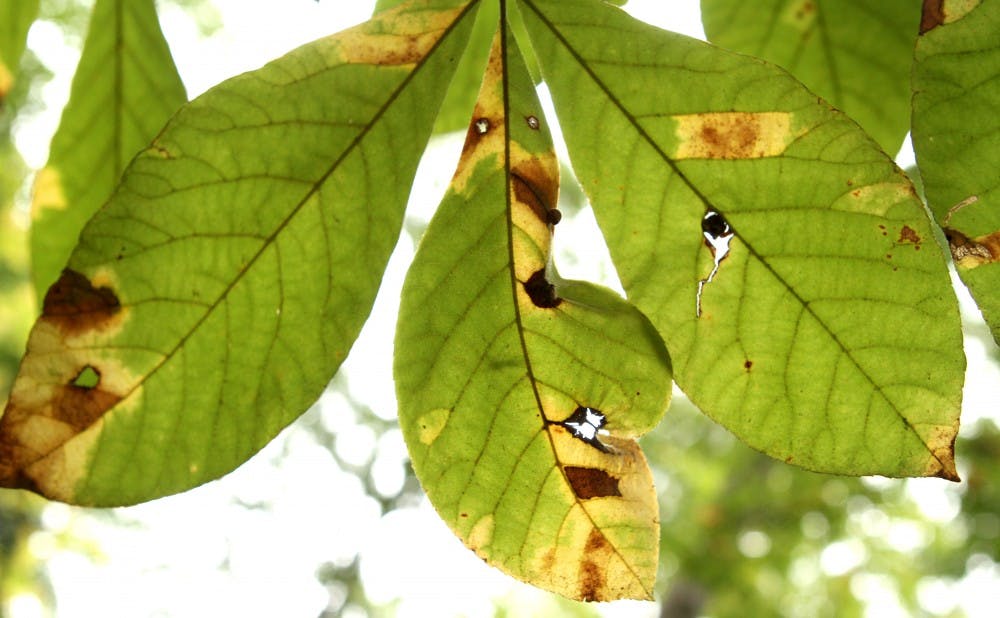The degree-day model, which most farmers currently use to determine when they should plant their crops, might be defunct as a result of climate change, according to a recent study led by a Duke professor.
The study focused on investigating how different plant systems—some manipulated by experimenters and others growing naturally—respond to climate change and developed a statistical model for planting that accounts for climate change. The research was conducted by James Clark, the H.L. Blomquist Professor of the Nicholas School of the Environment, Jerry Melillo, the senior investigator at The Ecosystems Center, Jacqueline Mohan, an assistant professor of ecology at the University of Georgia and Carl Salk, a research associate for the University of Colorado Boulder’s Environment and Society Program.
The researchers’ approach is unique in that it followed one set of plants through their developmental process, Clark noted.
“The model differs from those currently in use by following the development of plants over time,” Clark wrote in an email Tuesday.
The degree-day model estimates when leaves will arrive by measuring how many degrees above or below a mean the temperature has been over a period of time. Clark compared the difference between the degree-day model and the statistical model developed by the study to planning for a road trip.
“[Using the degree-day model] is like planning a trip to somewhere you’ve never been—take the distance and apply an average speed to estimate travel time,” Clark noted.
The statistical model can help farmers account for variables that can skew the average, particularly temperature variations that result from global warming, Clark said. He added that his model helps travelers deal with the “stoplights” or the “restroom breaks” of their trip.
“The average-speed model is bad when travel time is affected by conditions that vary,” he wrote—in the case of plants, variations in temperature.
Clark said the degree-day model will remain important.
“The traditional degree-day model will not (and should not) go away,” he wrote. “It provides a basic rule of thumb that can be applied when there is no knowledge of how organisms respond to temperature variation.”
Dole Food Company, the multinational agricultural company, is open to adjusting plant cropping methods in order to adapt to climate change.
“[Planting crops] has a lot to do with the climate—if things change climatically, we would have to make changes,” Dole Customer Response Representative Kevin Lane said.
He explained that Dole carefully considers the growing needs of each of the fruits and vegetables it cultivates.
“If we weren’t able to make changes, then we wouldn’t be a company that has existed for over 100 years,” Lane said.
Lane declined to give specific information about how Dole plants crops, saying that it was proprietary information.
Du Pont Pioneer, a major producer of genetically modified hybrid seeds, does not foresee changes in agricultural practices.
“I don’t know that there is that much [climate] variation that you have to do that,” said Jerry Harrington, the sales and marketing public relations manager at Du Pont.
He added that Du Pont waits until the soil is 50 degrees Fahrenheit or above before planting, in place of relying on the degree-day model.
“At that time, we are confident that the soil is warm enough to induce germination by the seed,” Harrington said.
Clark said that his team’s work is representative of a newer, more holistic and collaborative type of research.
“One of the exciting developments in science over the last decade has been our increasing ability to combine models about how things work with models for information, like observations from experiments, previous studies and theory,” Clark said. “The developmental model for effects of warming on bud break is an example of how this methodology can provide new understanding.”
Get The Chronicle straight to your inbox
Signup for our weekly newsletter. Cancel at any time.

